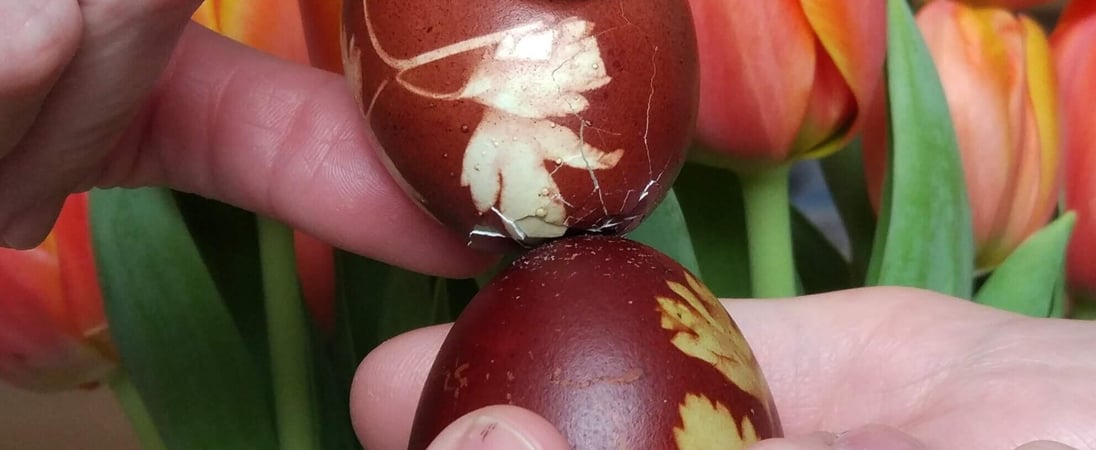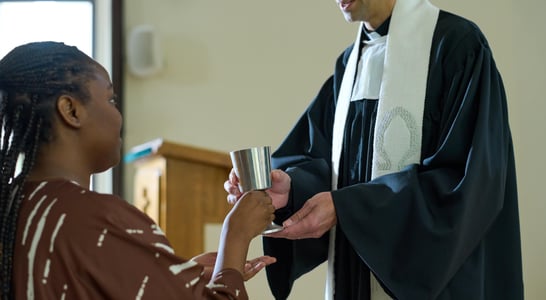
Egg Cracking Competition
The Egg Cracking Competition, known as tsougrisma in Greek, is a lively tradition celebrated during Greek Easter. Participants hold red-dyed eggs and take turns tapping them against each other. The goal is to crack the opponent’s egg without breaking your own.
This playful event is more than just a game; it represents the victory of life over death and joy over sorrow. The red eggs symbolize the blood of Christ.
In contrast, the cracking of the eggs signifies the breaking open of the tomb and the resurrection of Jesus, making it a meaningful part of the Easter celebration for many families.
The competition is simple but filled with excitement and laughter. Family and friends gather around, exchanging traditional Easter greetings as they play. The winner is believed to have good fortune for the coming year.
Despite the lighthearted nature of the game, it carries deep cultural and religious significance. It’s a cherished way for people to connect, celebrate, and remember the resurrection story.
Whether you win or lose, it’s the shared joy and sense of togetherness that make the day truly special.
How to Celebrate the Egg Cracking Competition
The Egg Cracking Competition is a delightful Easter tradition that brings laughter and joy to all ages. If you’re looking for creative ways to celebrate this playful event, here are some egg-citing suggestions to make the day unforgettable!
Egg-ceptional Egg Hunt
Put a twist on the classic egg hunt by hiding red eggs in unexpected places. You can use riddles and clues to lead participants from one hidden egg to the next.
Each egg could hold a small puzzle piece, and the final egg reveals a grand prize. This way, the hunt is both challenging and rewarding, ensuring plenty of excitement and friendly competition for everyone involved.
Egg-rolling Relay Race
Spice things up with an egg-rolling relay! Each participant must use a spoon to roll their egg across a designated course without dropping it.
Add obstacles like chairs or cushions to increase the challenge. The fastest egg-roller wins a special prize, and the audience will have just as much fun cheering them on as the players do competing!
Egg-pressive Decorating Contest
Transform plain eggs into works of art! Set up a decorating station with paints, markers, and glitter. Participants can create unique designs, from classic patterns to intricate sculptures.
Have categories for the funniest, most creative, and most elaborate eggs. This is a great way to showcase everyone’s artistic flair and let imaginations run wild.
Egg-streme Egg Toss
Pair up and see who has the best aim! Partners stand a few feet apart and toss a raw egg back and forth, taking a step back after each successful catch.
The goal is to keep the egg intact for as long as possible. The last pair standing with an unbroken egg wins! It’s a messy but memorable way to add some friendly competition to the day.
Egg-citing Charades
Bring some egg-cellent entertainment to the table with themed charades. Act out Easter-related phrases like “egg hunt,” “bunny hop,” or “cracking the egg” while others try to guess. Use props like toy eggs for added hilarity.
This is guaranteed to bring lots of laughter and keep the fun rolling long after the competition ends.
These ideas will make your Egg Cracking Competition a day full of joy and laughter. Whether you’re hunting, rolling, or decorating, everyone’s sure to have a cracking good time!
History of the Egg Cracking Competition
The Egg Cracking Competition, also known as “egg tapping” or “tsougrisma” in Greek, has been a cherished tradition for centuries.
This game likely began with early Christians in Mesopotamia. They painted eggs red to symbolize the blood of Christ shed during his crucifixion. From there, the custom spread to Eastern Europe through the Orthodox Churches and eventually reached Western Europe.
In Greece, this tradition remains strong. People crack red-dyed eggs to symbolize Jesus’s resurrection from the tomb. The hard shell of the egg represents the sealed tomb, and breaking it symbolizes new life emerging from death.
The game involves two players tapping their eggs against each other. The player with the unbroken egg is declared the winner and is believed to have good luck for the year.
In other parts of the world, this game has different names and rules. For example, in Louisiana, it’s called “egg pocking,” derived from the French word paques, meaning Easter.
Here, participants use various techniques to win, including sometimes sneaking in a marble or fake egg! This playful competition has become a significant part of the Easter celebration for many Cajun families.
In Central Europe, records of egg tapping go as far back as the 14th century in Zagreb. It was also popular in Poland during the 15th century, but the custom didn’t survive there.
The game is still widely played in Bulgaria and other parts of Europe, often with different rules and stakes, like promises of good health or longer life.
Each culture adds its unique twist to the tradition, but the core idea remains the same: celebrating life and new beginnings through a fun and competitive game.
See what else is happening…
There’s always more going on every month at Days Of The Year. Here are our favorites this month!
Also on ...
View all holidaysNational Look-Alike Day
Mimicking faces, these individuals possess an uncanny resemblance that sparks curiosity and prompts second glances in crowds.
National Cheddar Fries Day
Crunchy on the outside, fluffy on the inside, whether dipped in ketchup or smothered in cheese sauce, these fries are a satisfying snack.
Pizza Delivery Driver Appreciation Day
Speedy deliverers of deliciousness bringing joy to hungry hearts, swiftly transporting piping-hot slices of happiness right to your doorstep.
We think you may also like...
National Take Down the Christmas Tree Day
Time to finally bid farewell to the Christmas tree — undecorating can be bittersweet, but memories of the holiday season will last all year.
Orthodox Christmas Day
Orthodox Christians commemorate the birth of Jesus Christ with customs varying across different cultures and countries.








